This Is the 2020 Word of the Year, Oxford Dictionary Says

Calling 2020 “unique” feels like an understatement. Many things have changed this year, from the way we work to the way we function in society, and the Oxford English Dictionary “Word of the Year” is no different. Since 2020 has been hard to put into words, Oxford Languages had to adjust how they normally do things in response to a year full of surprises they couldn’t describe succinctly. Rather than having just one word represent 2020, Oxford moved to a full list of “Words of an Unprecedented Year.” Keep reading for all of the Oxford Words of the Year, and for words we should leave behind in 2020, check out these 5 Words to Ditch From Your Vocabulary ASAP.
Generally speaking, the (usually singular) Word of the Year is chosen to reflect the year it signifies. “The Oxford Word of the Year is a word or expression that is judged to reflect the ethos, mood, or preoccupations of the passing year, and have lasting potential as a term of cultural significance,” Oxford Languages explains. In 2018, the Word of the Year was “toxic,” and in 2019, it was “climate emergency.”
When faced with the challenge of selecting a word to reflect this tumultuous year, Oxford Languages couldn’t pick just one. The 2020 Words of an Unprecedented Year report says, “The English language, like all of us, has had to adapt rapidly and repeatedly this year. Given the phenomenal breadth of language change and development during 2020, Oxford Languages concluded that this is a year which cannot be neatly accommodated in one single word.”
Instead, Oxford Languages assigned Words of the Year to the months in which they reached their peak frequency of usage. Here are Oxford’s 2020 Words of an Unprecedented Year, and to see what words you should ditch, here are 4 Words the Dictionary Says You Should Stop Using.
1
Bushfire
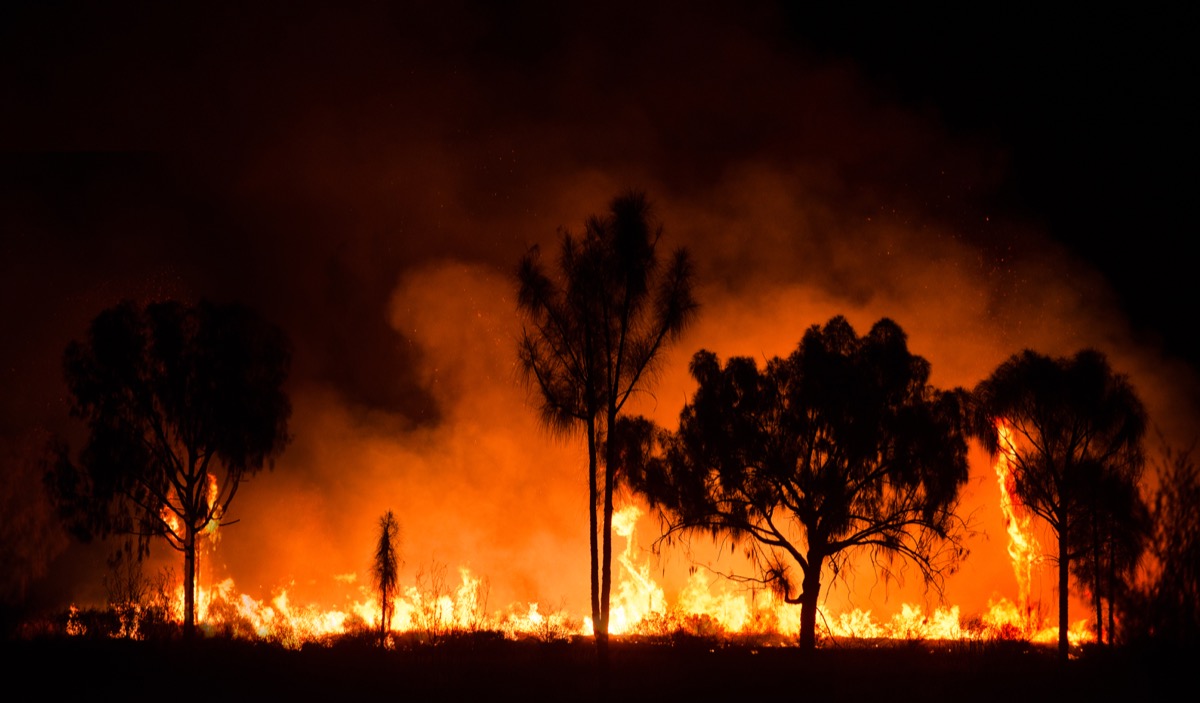
At the end of 2019 and the beginning of 2020, the Australian bushfire season rolled in and became the worst in documented history. The bushfires across the country were fueled by record-breaking temperatures and lengthy bouts of severe drought. And for the etymology of other common words, discover The Amazing Origins of Everyday Slang Terms You Use Constantly.
2
Impeachment
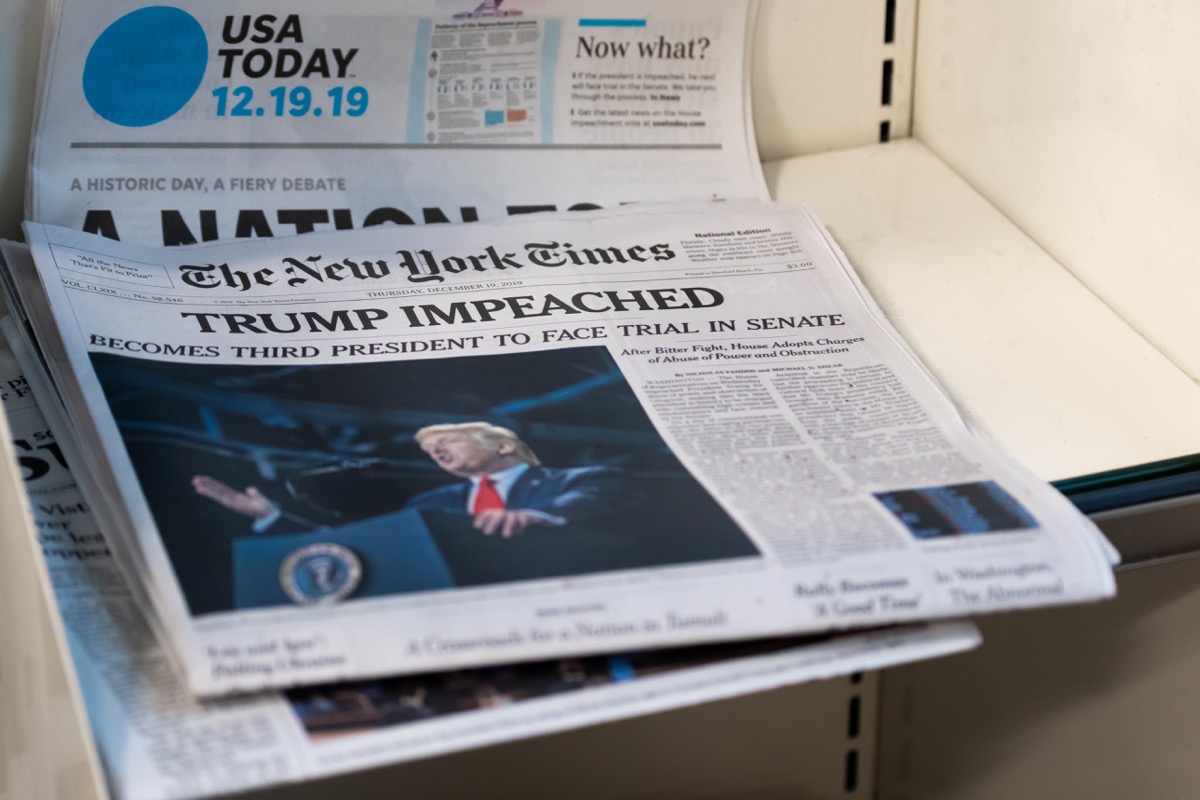
Impeachment became a hot topic in January when President Donald Trump faced an impeachment trial.
3
Acquittal
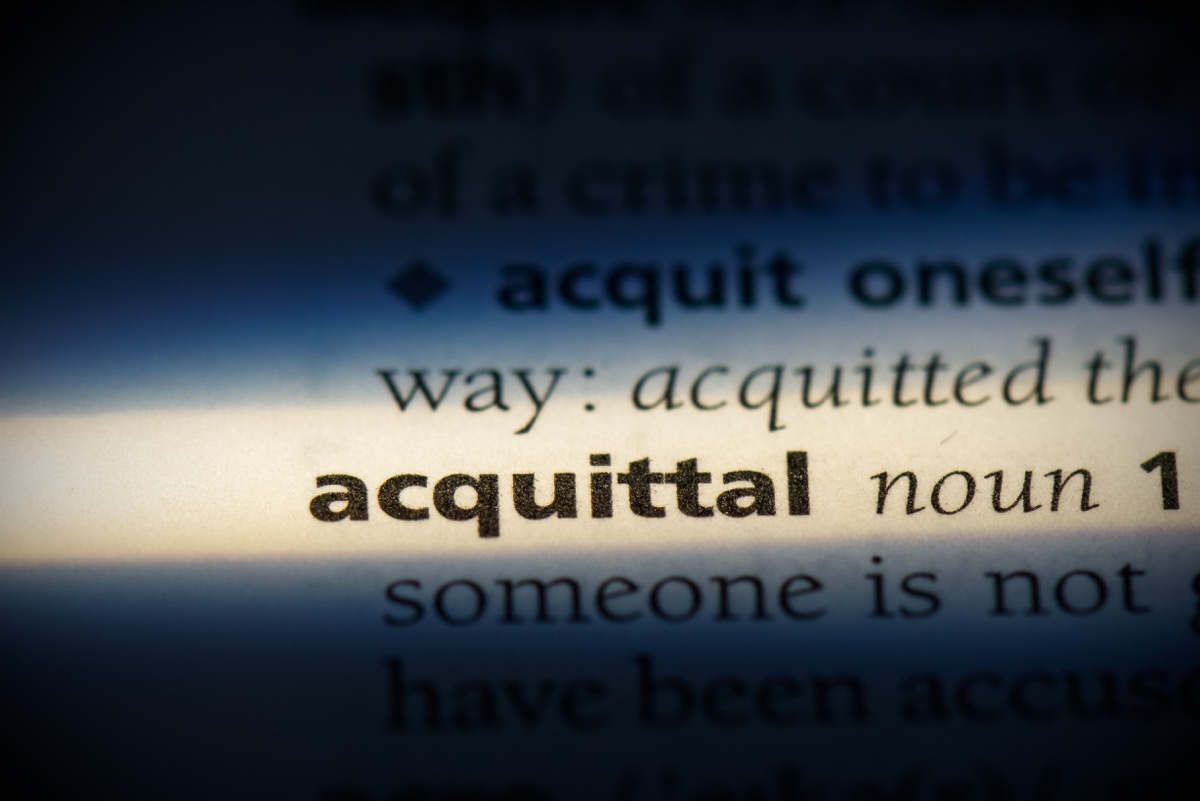
In February, following Trump’s acquittal—allowing him to remain in office, despite being impeached—this word became popular. And for more useful information delivered straight to your inbox, sign up for our daily newsletter.
4
Coronavirus
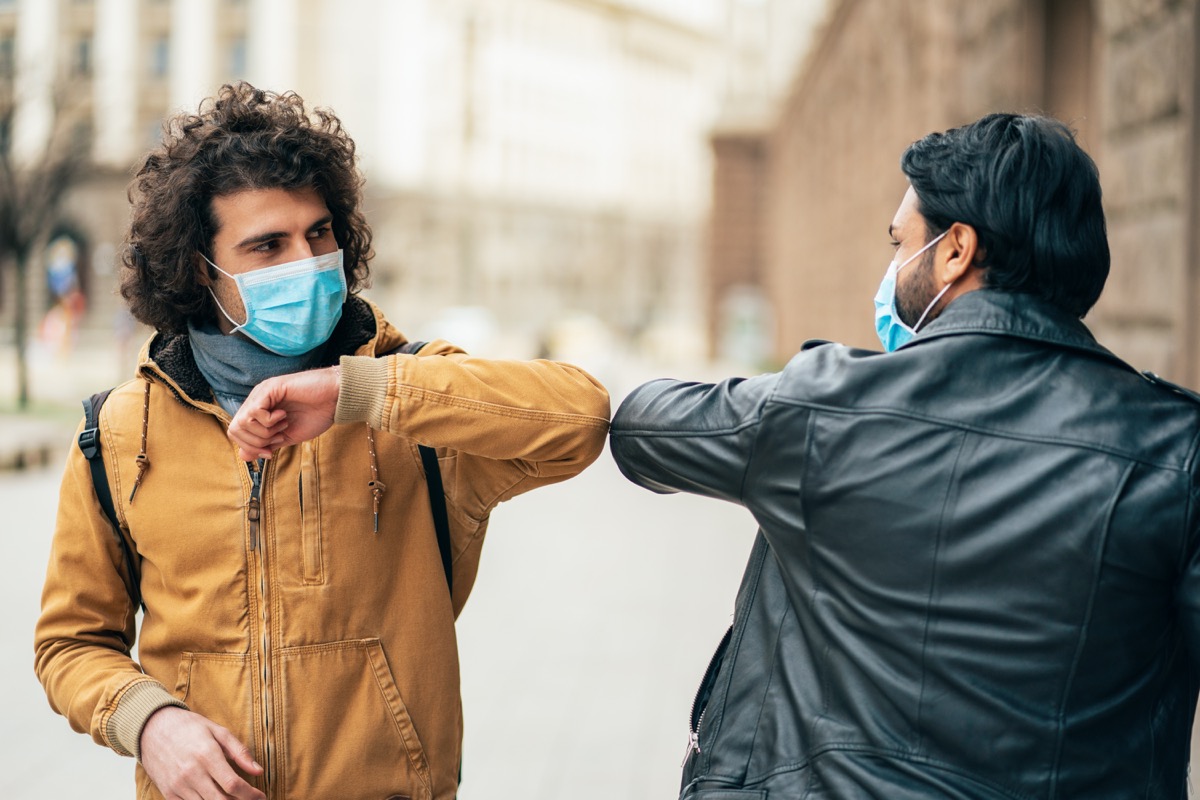
By the end of March, “coronavirus” became “one of the most frequently used nouns in the English language, after being used to designate the SARS-CoV-2 virus,” according to the report.
5
COVID-19

While the word “coronavirus” already existed before the pandemic, “COVID-19” was a completely new word that reached the height of its popularity in April. According to the report, the term was first used by the World Health Organization as an abbreviation of “coronavirus disease 2019.” The term quickly became the more common designation.
6
Lockdown

In April, “lockdown” was the word on everyone’s lips as much of the world entered into government-enforced quarantine to mitigate the spread of COVID-19. And for cheerier words, check out The Most Beautiful Words in the English Language—And How to Use Them.
7
Social distancing

Governments across the globe introduced citizens to social distancing, the act of keeping six feet of distance between people to reduce the spread of COVID-19. As governments began to lift lockdown measures, the term “social distancing” spiked in popularity toward the end of April.
8
Reopening

“Towards the Northern Hemisphere summer more hopeful words increased in frequency, including reopening,” says the report. The word “reopening” spiked in popularity in mid-May when used to refer to businesses, schools, restaurants, offices, and more that were able to open again.
9
Black Lives Matter
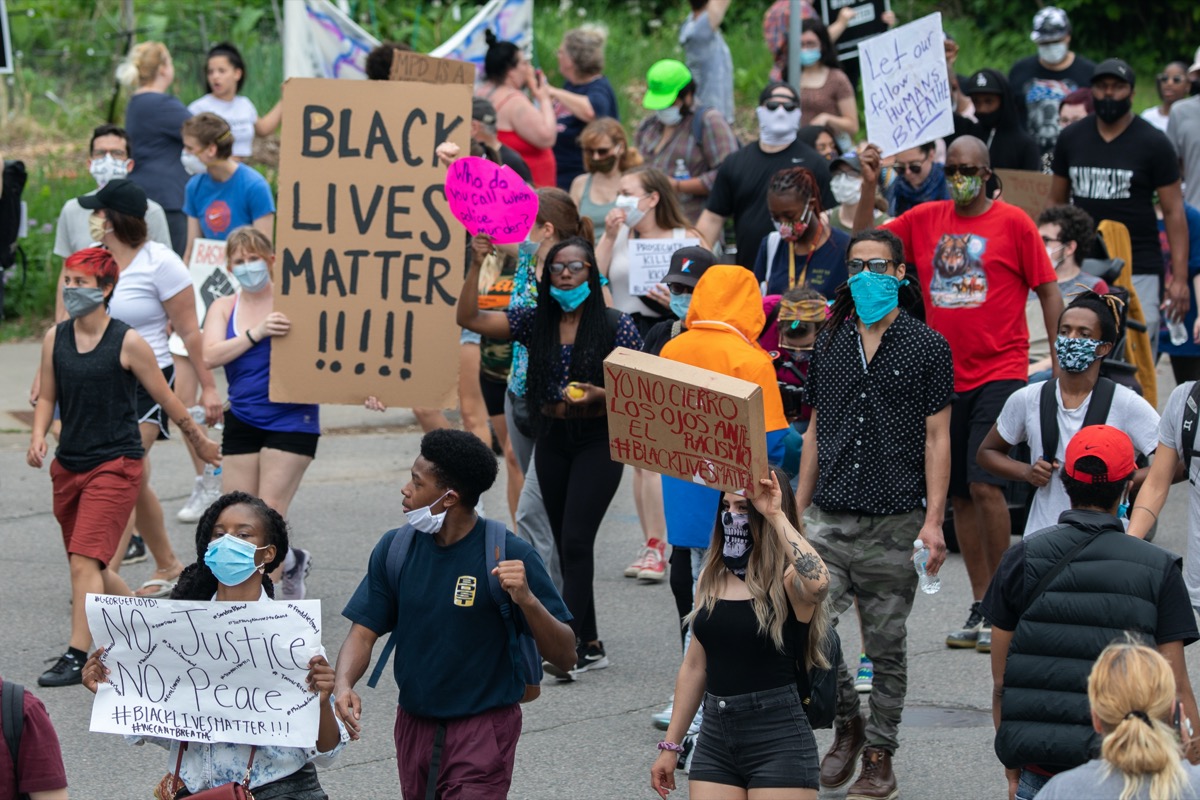
The phrase “Black Lives Matter” originated in 2013 in response to the acquittal of George Zimmerman for the murder of Trayvon Martin. However, the phrase “exploded in usage beginning in June of this year, remaining at elevated levels for the rest of the year as protests against law enforcement agencies over the killings of George Floyd, Breonna Taylor, and other Black Americans took root in communities across the United States and across the world,” according to the report. And if you are committed to anti-racism, ditch these 7 Common Phrases That You Didn’t Know Have Racist Origins.
10
Cancel culture

A societal shift followed the resurgence of momentum behind the Black Lives Matter movement. People in positions of power began to get called out for their actions, which led to repercussions that some dubbed “cancel culture.” According to the report, cancel culture—which saw a surge in usage in July—is “the culture of boycotting and withdrawing support from public figures whose words and actions are considered socially unacceptable.” And for words you need to stop using, find out The One Word Older People Should Never Say.
11
BIPOC

BIPOC surged in usage in tandem with Black Lives Matter—the abbreviation stands for “Black, indigenous, and other people of color.”
12
Mail-in

The 2020 election is now over, but Americans were discussing the issue of voting in a presidential election amid a pandemic back in August. The report found that the term “mail-in” saw a 3,000 percent increase in use as compared to last year.
13
Belarusian

In August, the re-election of President Alexander Lukashenko in Belarus caused an uprising in the country. The adjective “Belarusian” skyrocketed in usage as a result.
14
Moonshot

As the UK government rolled out Moonshot, their plan for mass COVID testing, in September, the term rose to significance.
15
Superspreader

According to the report, the word “superspreader” dates back to the 1970s but gained popularity in 2020. “There was a particular spike in usage in October, mainly with reference to the well-publicized spread of cases in the White House,” says the report.
16
Net zero
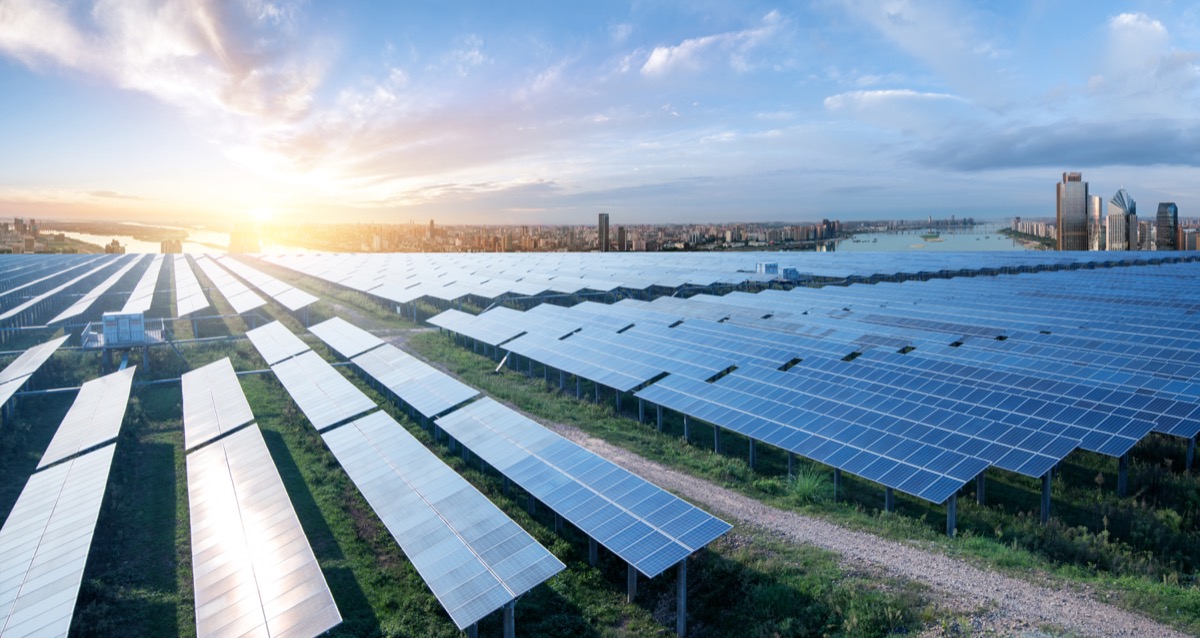
The report says the term net zero has been “on the rise as the year draws to an end: the recent increase partly relates to the historic pledge made by President Xi Jinping in September, that China will be carbon neutral by 2060.”